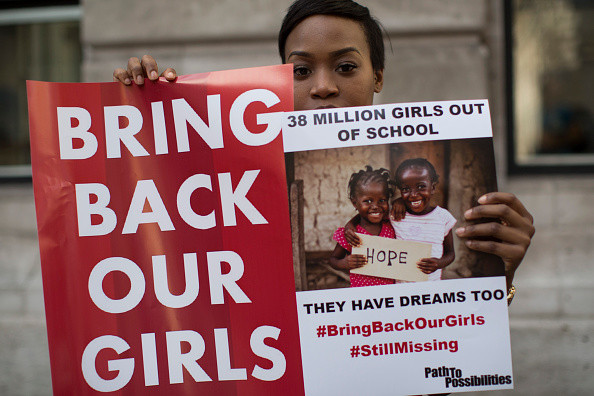Nigeria: Women 'disgusted' as equality bill incompatible with Quran and Bible rejected

Many Nigerians have reacted with anger after the senate rejected a proposed gender and equal opportunity bill aiming to tackle discrimination against women in all sectors of society. The rejection was blamed on the draft law not being compatible with the country's constitution and religious beliefs.
Some Nigerian senators said the draft law, presented by Senator Abiodun Olujimi, was against some principles of Sharia law − implemented in 12 Nigeria's states − and the Bible.
Abubakar Bukola Saraki, senate president and chairman of 8th Assembly, explained in a statement the the bill was rejected as "there were some parts that some senators disagreed with along the lines of religion and tradition." He continued: "The beauty of democracy is that it gives us the opportunity to consider different opinions and this bill can still be represented and reconsidered on the floor of the Senate. There are substantial parts of the bill that are crucial to the development of our nation, such as the equal access to education, strengthening of the laws on violence against women, ending abduction of girls, sustenance and promotion of entrepreneurship opportunities, gender mainstreaming and gender equality, female participation in governance, among others."
The rejection prompted several Nigerians, including senators, to take to social media to vent their outrage or show their support for the bill. Some activists also launched a petition to urge senators to sign the bill into law.
My dear constituents,let me assure you all that as your Senator,I would never vote against a bill to guarantee gender equality. #GEOBill
— Gbenga Ashafa (@SenGbengaAshafa) March 16, 2016
Disappointed the #GEOBill didn't pass. My support for #GEOBill is unequivocal and we will keep pushing for Equality https://t.co/JY0qD0azKu
— Sen.Monsurat Sunmonu (@MonsuratSpeaks) March 16, 2016
Your Senators said YES to child marriage, YES to oppression of widows, YES to gender inequality by voting NO to #GEOBill
— Iyalode (@LitaofLagos) March 15, 2016
The #GEOBill also seeks enforcement of maternity leave with pay. Our Senators said NO! pic.twitter.com/xMtVxiwPGb
— B. (@zebbook) March 15, 2016
International journalist and global community activist Kemi Nkem Omololu-Olunloyo told IBTimes UK she was "disgusted" after the bill was rejected. "In Nigeria, women are treated as second-class citizens by even ordinary males on the streets. Female legislators are not even given the same due process as the males during speaking sessions and they are sometimes booed," she said. "I personally am known in my city of Ibadan [capital of Oyo State] as being vocal on the streets about this and it is left to us vocal, loud and powerful women in society to educate young girls on how to keep it real. Most of those senators who voted 'nay' should carefully listen to their own daughters very soon."
Olayemi Akande, a prominent Nigerian blogger based in Lagos, said the bill rejection was not surprising. "I had a feeling this rejection would happen. I understand that Nigeria as an African country would not be easily disposed to gender equality both from the religious and cultural point of views," she told IBT. "I really do not see the senate supporting an absolute and total gender equality in all areas. I hope the senate will eventually pass the bill without dragging it for a long time even if compromises might be made. It will be a welcome development for us women."
Nigeria up close: Check out our Flipboard magazine
© Copyright IBTimes 2025. All rights reserved.





















